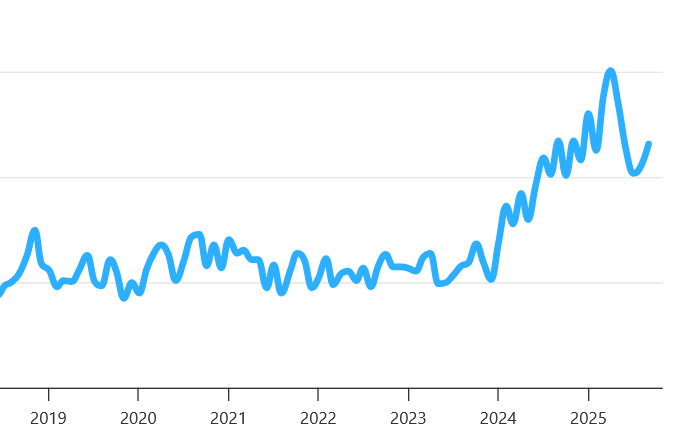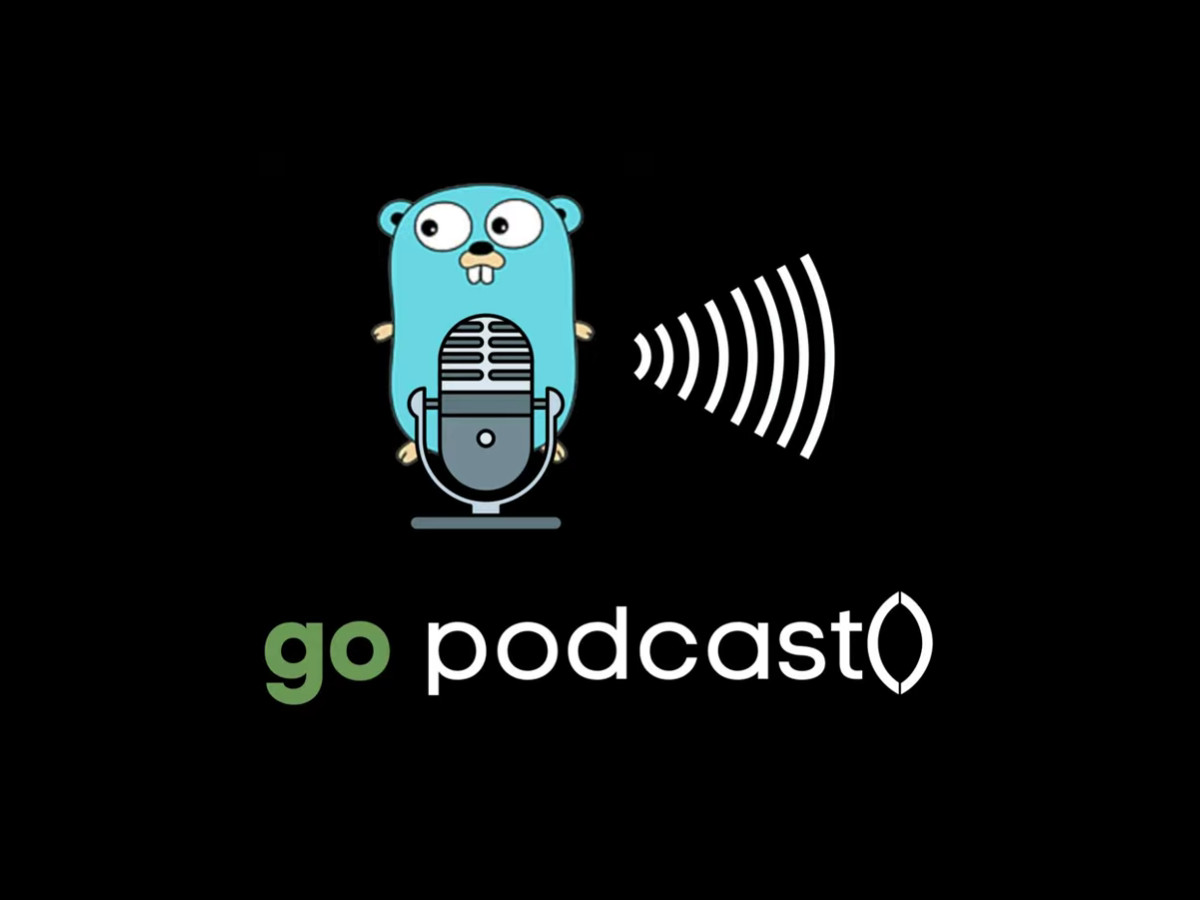It was a moment for our time — two long-time Go programmers pondering the future of their language, and how it will be impacted by AI…
“I’ve been building software systems for the last two decades,” writes Quebec-based programmer Dominic St-Pierre, who, according to his website, heads the business software consultancy Focus Centric. But with an interest in teaching, he’s also launched a YouTube channel of programming tutorials — mostly Go — and also a Go podcast with over 800 subscribers. For years, he’s been sharing the joy of programming…
He asked: How should he react to the AI-generated code now appearing at the businesses where he consults?
Earlier this month St. Pierre’s podcast hosted programming educator/author John Arundel, who self-published For the Love of Go in 2021, and has recently released a heavily revised edition called The Deeper Love of Go.
Together, the two Go programmers shared their notes from the real world — from production, from their respective consulting gigs, from Arundel’s ongoing SaaS development, and from their years as dedicated programming educators.
The podcast captured not just their thoughtful discussion about where we’re heading, but also where things stand right now — seeing the growing popularity of Go, the rise of AI, and how it could all end up dramatically transforming the programming world that they love…
The Rising Popularity of Go and AI Tools
Arundel, the author, noted that even as he was wondering about Go’s future, “It kind of bounced back a little bit.” And St. Pierre agrees.
“Personally, I’ve seen a little bit of spike lately, let’s say in the last six months, maybe.” And that gut feeling seems supported by statistics. By last November, Go had jumped to its all-time highest position on TIOBE’s ranking of programming language popularity — #7 — with TIOBE CEO Paul Jansen saying Go was fast, easy to learn, easy to deploy, and easy to understand. Jansen concluded that in TIOBE’s rankings, “If annual trends continue this way, Go will bypass JavaScript within three years.”

The Tiobe Index shows Go’s percentage of their tracked metrics suddenly starting to rise around December of 2023
And in Stack Overflow’s annual developer survey, 16.4% of respondents said they used Go in 2025, up from 13.5% the year before. So Arundel predicts later that our status quo — a world filled with Go — will last “certainly several decades… Go is just so embedded in the fabric of the cloud and internet and everything else. It’s going to be with us until long after the apocalypse, probably!”
But St. Pierre has also taken note of a new surge in AI tools — and even a surge in AI-generated CLI tools being submitted to the Go subreddit. While trying AI tools, St. Pierre has discovered just how easy AI makes it to build things in Go. Maybe Go’s popularity was being helped along by its easy compatibility with code-generating AI tools? Thanks to Go’s portability, “you can deploy them in all sorts of OS and things like that by default.”
Arundel agreed that AI may be getting people past those first few blocks. “It’s making it way easier for them to just build something, and post it to Reddit!” he said with a laugh. (Arundel added later that Go “seems to be well-suited to being generated by the yard by AIs, because it’s a fairly syntactical language.”)
The Go team is indeed actively pursuing the AI demographic. As Go celebrated its 15th anniversary last November, Go lead Austin Clements specifically said that the core team was “working on making Go better for AI — and AI better for Go — by enhancing Go’s capabilities in AI infrastructure, applications, and developer assistance.
“Go is a great language for building production systems, and we want it to be a great language for building production AI systems, too.”
And Clement also promised the Go team would continue building out first-class support for Go in popular AI SDKs, including LangChainGo and Genkit…
The Challenge of Mediocre AI-Generated Code
How does this play out in the real world? While AI could be causing problems for Reddit moderators, St. Pierre thinks the problems extend further, with people creating products they “probably should not” — and confronting users with extra choices. “Instead of having one or two really decent choices, you have 30 — but 22 of them will close in the next two weeks.”
It’s even raising questions in his consulting business now, since “The mediocrity now is accepted everywhere — and I have so many difficulties with that.”
Although Arundel had a good comeback. “Don’t you think if there’s more bad software, people will need consultants more?”
But St. Pierre’s thoughts lie with the poor consultants. “The thing that I’ve seen so far is that the bar to accept deliverables is very low…” And after running some tests with Claude, “I’m sorry, but it’s not good code. And I would not want to be in a team that produced that kind of code.” Laughing, he said, “I don’t want to maintain code that the AI generates, because it’s mostly not good.”
Arundel jokingly shared a different concern. “I just wish they hadn’t chosen the name ‘agents’. I mean, that just makes me think of The Matrix. Because they’re the bad guys, aren’t they?”
Is Bad AI Code Worse Than Bad Human Code?
But more seriously, Arundel said he understands St. Pierre’s frustration with sloppy AI-generated code, “and I think maybe everybody’s grappling with this — and just how you choose to decide you’re going to feel about it.”
“And I think I’ve decided that I’m going to feel optimistic, reasoning this is going to bring lots of people into the world of programming, which is a fun world. And if that means more people learning, that maybe means more demand for my books or mentoring, or whatever. But even if not… that’s okay. I’ll get by.”
“I just think it’s kind of nice if it’s introducing a whole new generation of people to getting into this, which maybe they wouldn’t have got into if it wasn’t for this.”
Arundel added that “it’s not like software used to be perfect when it was written by humans.” So even if AI-generated code sucks, “It probably sucks about the same amount. Software has always been terrible. It’s just suddenly there’s a great deal more of it, and it’s far cheaper to crank it out.”
He’s come to an interesting counterpoint. “Is bad software produced by AI any worse than bad software produced by humans?”
St. Pierre saw a key difference. “The amount of things that the AI is outputting is overwhelming! So now you don’t even want to do any kind of review, because instead of reflecting and thinking about the problem and things like that, now you are receiving a gazillion pull requests…”
Arundel acknowledged that today’s software engineers probably now spend more time reviewing and fixing AI-generated code — along with issuing new prompts.
“And maybe they would’ve done that previously with human juniors, or something — but I think it’s a lot easier to teach humans, isn’t it?” He said with a laugh, ” I mean, you keep telling Claude stuff, and he just doesn’t seem to get it somehow…”
An Optimistic Outlook on the Future of Programming
But Arundel had another point. “If the part of the job that appealed to you was typing out functions and Go files and things, of course, now you won’t get much of a chance to do that anymore, which is a shame. Your job is going to be more about reviewing and fixing and guiding other people’s code and cudgeling it into some sort of decent architecture.”
Although on the other hand — “Some people enjoy that.”
St. Pierre sees something else that’s lost: the joy of seeing young programmers realize their potential. “I was enjoying hiring a junior, training a person… and seeing them explode and beat me at some point. That is fun. That was what I was liking.” If junior developers are now using AI — and learning from AI-generated codebases — will their learning suffer? “I’m just a little bit concerned.”
And he also thinks there’s been a little too much hype — and can’t wait for the pendulum to swing back.
“With the state of the world at the moment, I don’t think that we are ready for AI.”
Arundel acknowledges it’s hard to talk about this without sounding like a grumpy curmudgeon — and tries to strike a philosophical note. Things travel in circles, pendulums swing back, and our future just isn’t 100% clear. “Where we are now is a very weird and transitional time, and things are probably going to shake out differently to what we imagine.”
And whatever happens, in his opinion, programming “is not going to go away, as an activity. People are going to continue to do it. Even if there was zero economic value to it — which I doubt — I think people would still do it.
“Because it’s fun!”
YOUTUBE.COM/THENEWSTACK
Tech moves fast, don’t miss an episode. Subscribe to our YouTube
channel to stream all our podcasts, interviews, demos, and more.

